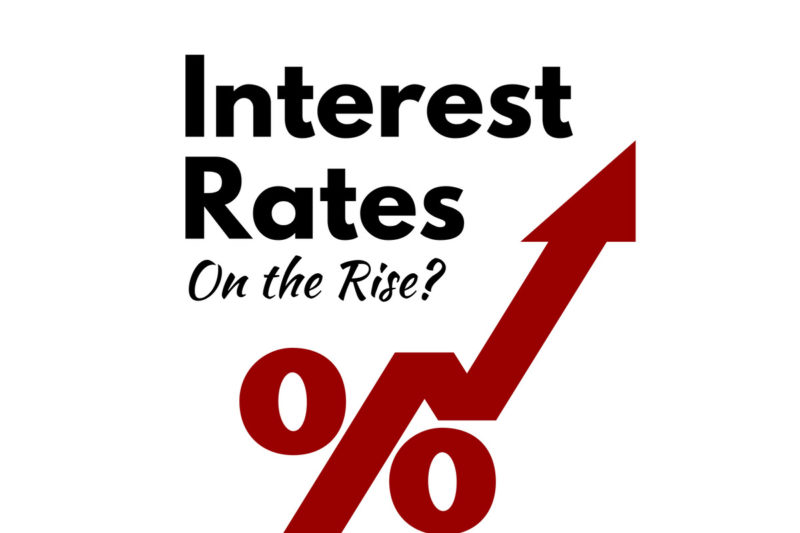On Thursday 2 February, the Bank of England announced that it was raising the base rate of lending to 4%.
This had been widely expected by the markets and consequently, it produced no great shocks or economic upset. The new rate will increase borrowing costs for those on variable rate mortgages and, in theory, it should do the same for those looking to make new purchases or to re-mortgage.
However, the experience of recent weeks has been that many lenders have been competing hard to win new business, reducing their rates in anticipation of Thursday’s announcement. Consequently, the impact of the +0.5-point rise will have been offset to varying degrees by those reductions.
In any event, with the rate of inflation falling slowly, external inflationary pressures easing and the UK economy expected to shrink this year, the Bank’s Monetary Policy Committee (MPC) certainly won’t be anxious to raise the base rate faster or higher than it absolutely must. To do so would heighten the risks of recession, unemployment and falling productivity. The Bank concedes that “the increases in Bank Rate since December 2021 are expected to have an increasing impact on the economy in the coming quarters.” Consequently, regardless of whether further hikes are announced later this year, it seems increasingly unlikely that the base rate will reach the heights that were forecast towards the end of 2022.
With current inflation still running well above the 2% target at 10.5% the Bank of England predicts rates to level out at 4.5% by the middle of the year and fall back to 3.25% in the next three years.
The Bank of England reports that “the MPC voted by a majority of 7–2 to increase Bank Rate by +0.5 percentage points, to 4%. Two members preferred to maintain Bank Rate at 3.5%. Global consumer price inflation remains high, although it is likely to have peaked across many advanced economies, including in the United Kingdom. Wholesale gas prices have fallen recently and global supply chain disruption appears to have eased amid a slowing in global demand. Annual CPI inflation is expected to fall to around 4% towards the end of this year.
The next base rate decision is expected on 23 March 2023.
Experts react on impact for landlords
Property and finance experts have reacted to the news that the Bank of England has raised the base rate from 3.5% to 4%. They highlight that the mortgage market has been preparing for the base rate increase by the Bank and have factored this into their product ranges. However, landlords may find that the stress testing undertaken by lenders is much stiffer as a result.
In its report that explains the rise, the Bank says that the pandemic and rising energy prices have hit the economy. The report also highlights that inflation will drop to 8% by June – and by the end of the year it will be 3%. The Bank also says that the recession will not only be short than predicted, but also milder.
Many landlords coming to the end of fixed term products
Angus Stewart, the chief executive of Property Master, said: “With many landlords coming to the end of fixed term products this year, while there is still a significant increase in rate from their old, fixed term, it is still in their interests to look for a new mortgage product – either fixed or discounted – rather than go onto the lender’s SVR. Since the mini-Budget last year when we were seeing buy-to-let mortgage products removed from the market at an unparalleled level, most lenders have now returned to the market, and we are seeing increasing competition. The key challenge for many landlords is meeting the affordability requirements given the higher product rates resulting in tougher stress tests.”
Mr Stewart continued: “We again advise landlords to look to ensure that they are not sitting on the lender’s SVR and paying a premium. There are mortgage products available without early redemption fees and for those concerned about locking themselves into a fixed term this is a sensible option.”
Many of those on a tracker mortgage will still be on a lower rate
Rightmove’s property expert, Tim Bannister, said: “It’s likely that many of those on a tracker mortgage will still be on a lower rate than most current fixed-deals even with this increase, so we’re unlikely to see any rush to fix from this group just yet, although with the gap between tracker and fixed rates narrowing it may prompt more people to see what’s on offer in the coming weeks. For those considering taking out a fixed mortgage deal soon, the good news is that this increase was widely expected by the financial markets and will have likely been factored into their plans. This means that we may see fixed-rate mortgage deals continue to edge downwards in the first half of this year, as some stability and calm continues to return to the markets. We’re still seeing buyer demand higher than the last normal housing market of 2019, indicating that people have the confidence to get on with their moves and if fixed deals do head further downwards this may encourage people further. We may see further increases in the base rate later this year but it’s difficult to predict how it will impact mortgage rates.”
4% may not be the peak for base rate
Mark Harris, the chief executive of mortgage broker SPF Private Clients, said: “While 4% may not be the peak for base rate, it is unlikely to be far off. Fixed rates are influenced by future base-rate movements and therefore not directly linked to what is decided this week. Indeed, the pricing of fixed-rate mortgages, which soared after the mini-Budget, continues to drift downwards, with five-year fixes available from just above 4 per cent. It’s unlikely to be long before we see five-year fixes cheaper than base rate.”
Jeremy Leaf, a north London estate agent and a former RICS residential chairman, said: “The effects of the Bank of England’s base rate decision have seemingly been discounted by many homebuyers and sellers who are on fixed-rate deals which don’t expire for some time yet. But don’t get me wrong, those directly impacted by the change will know all about it in their repayments. The impact on house prices has been a reminder that negotiations can be tough if transactions are to happen as prospects are not exactly rosy.”
We are seeing challenges within the market
Nathan Emerson, the chief executive of Propertymark, the UK’s professional body for estate agents, said: “We of course are seeing challenges within the market as the cost of people’s mortgage payments are in some cases a lot higher than they have been traditionally used to. However, due to the demand for homes continuing to outweigh the number of properties available, this is fuelling a more stable market. With Banks stress testing people’s finances for many years, arrears and repossessions aren’t drastically increasing and we are therefore seeing a levelling out of the market and a return to more normal levels of housing transactions.”

Top Bank of England official gives clearest signal yet that UK interest rates are at or close to their peak
A top Bank of England official gave the clearest signal yet that UK interest rates are at or close to their peak. Just a day after rates were raised to a 14-year high of 4%t, the Bank's chief economist Huw Pill warned against doing 'too much' in terms of further moves. The ex-Goldman Sachs economist, who sits on the interest rate-setting monetary policy committee (MPC), said the Bank has already 'done a lot' to tame sky-high inflation. He added "that the full effects of the rate hikes – from 0.1% in December 2021 to 4% now – have not yet been fully felt by the economy. Interest rates have risen by almost 400 basis points over little more than a year and given the lags in the transmission of monetary policy, there's quite a lot of the effects of those raises in interest rates still to come through. It's important that we guard against the possibility of doing too much."
Pill also said "the Bank needed to keep a 'zen-like' balance in its objective to bring inflation back to its 2% target. Inflation is now at 10.5%, having peaked above 11% last year. While the central bank expected inflation to reach its target by the middle of next year." Pill warned that care needed to be taken to ensure companies did not become used to jacking up prices that would risk the issue lasting for longer.
The Bank hiked interest rates for the tenth time in a row by half a percentage point to 4% on Thursday, piling more pressure on mortgage payers and borrowers. But it was more upbeat on the economic outlook, saying that while Britain was set to enter recession this year, it would be shorter and shallower than previously predicted.
The assessment provided some light relief for UK analysts amid signs that the pain facing Britain's economy was not yet over. Services firms suffered their weakest performance in two years last month, data showed, as growth was dented by cutbacks in business and consumer spending. S&P Global said its index of activity in the sector – where 50 is the cut-off between growth and decline – fell from 49.9 in December to 48.7 in January.
That was its lowest level since January 2021, when the country was under a tough Covid lockdown. Tim Moore, economics director at S&P Global Market Intelligence, said the data showed the economy 'risks falling into recession' as it was hit by labour shortages, industrial disputes and higher interest rates. But there were some positive signs, as the reading was less weak than previous estimates of 48. Business optimism also hit its highest level since April last year as company bosses became more hopeful that the worst was over.

BoE reveals latest mortgage lending data
Net borrowing of mortgage debt by individuals decreased to £3.2 billion in December from £4.3 billion in the previous month, data released by the Bank of England (BoE) on Tuesday has revealed. Gross lending fell from £25.1 billion in November to £23.3 billion in December, while gross repayments were broadly unchanged at £21 billion. Mortgage approvals for house purchases, an indicator of future borrowing, also decreased to 35,600 in December from 46,200 in November – the lowest since May 2020 and the fourth consecutive monthly decrease in mortgage approvals.
The central bank noted that if the onset of the COVID-19 pandemic and the period immediately thereafter is excluded, house purchase approvals are at the lowest level since January 2009, when the total was just 32,400. The BoE’s latest Money and Credit statistical release also showed that approvals for remortgaging, which only capture remortgaging with a different lender, fell to 26,100 in December from 32,600 in November, the lowest level since January 2013, which recorded 25,800.
The ‘effective’ interest rate – the actual interest rate paid – on newly drawn mortgages increased by 32 basis points to 3.67% in December, the largest monthly increase since December 2021, when the BoE started raising the base rate. “December’s Money and Credit data from the Bank of England will come as no surprise, as the final quarter of 2022 was a challenging one for the economy and the mortgage market,” Stuart Wilson, chairman of Air Club, commented. “Many prospective homebuyers will have delayed their plans to purchase a home in the lead up to Christmas, in the hope that the economic volatility would level out or prices may soften. Looking to the future, while there is still the prospect of a housing market correction, rates have stabilised not fallen and residential mortgage affordability criteria have – if anything – tightened.”
Phil Gamblin, founder of Cardiff-based mortgage broker Oak Financial, agreed that the drop in mortgage approvals in December was unsurprising following the mini budget and given the usual seasonal lull. “We’ve seen a large number of enquiries from home buyers and remortgagers alike in January, suggesting that the turmoil felt at the end of 2022 is dying down and confidence is returning to the market,” Gamblin added. “If, as expected, the Bank of England raises rates again this week, I don’t expect this to have a massive effect on the property market. Mortgage rates have been coming down consistently over the past couple of months and lenders are now firmly entering ‘rate war’ territory. This will only encourage buyers further. I don’t think the huge price drops that some are predicting are going to materialise, all the more so given the lack of stock.”
For Paul McGerrigan, chief executive at fintech brokerage Loan.co.uk, while the property market should improve during January, economic uncertainty and the Bank of England’s pressure on interest rates will continue to have an effect. “Pressures on borrowers is sure to mount after the bank’s Monetary Policy Committee decision on interest rates on Thursday – a 0.5% increase looked a shoo-in, but there have been a few suggestions that 0.25% might prevail,” he said. “Any increase will hurt borrowers in the short term. There may be light at the end of the tunnel as some traders are pricing in a rate reduction later in the year to kickstart the economy once inflation has significantly reduced.”
When could interest rates go down?
There’s no clear answer to this one, as nobody really knows at this stage when interest rates will start to fall. But the Bank of England expects interest rates to hit 4.5% in the middle of this year, falling back to 3.25% in three years’ time.
And while the country is facing a recession, it’s expected to be ‘shallower’ than predicted, indicating a less severe downturn – good news for jobs. Announcing this latest bank rate rise, Andrew Bailey, Governor of the Bank of England, said: "We’ve seen the first signs that inflation has turned the corner. We think it will continue to fall this year and more rapidly in the second half. This has a lot to do with energy prices. The forecast suggests that inflation will come down, and it will fall quite sharply."
But he did add a strong note of caution, "events may not unfold in this way. With inflation currently above 10% we are in uncharted territory. Energy prices may not fall by as much as currently expected…and even if they do, this period of very high inflation could play into price and wage setting in the UK economy to a greater extent than we assume. It’s too soon to declare victory just yet. Inflationary pressures are still there. We need to be absolutely sure that we really are turning the corner on inflation."
According to the BoE, interest rates have been rising in a bid to bring inflation down. Their website says: ‘The cost of living has risen sharply over the last year. The speed of that increase is called the rate of inflation. It’s our job to keep the UK’s rate of inflation low. We have a target of 2%. Raising interest rates is the tool we use to bring inflation down. Inflation is measured each month by the Office for National Statistics, which checks the prices of a ‘basket’ of goods and services – from everyday items like bread and milk to cars and holidays. If you want to see the value of money in previous years – eg. £10 worth of goods in 1990 would cost over £21 now – you can check it here.

